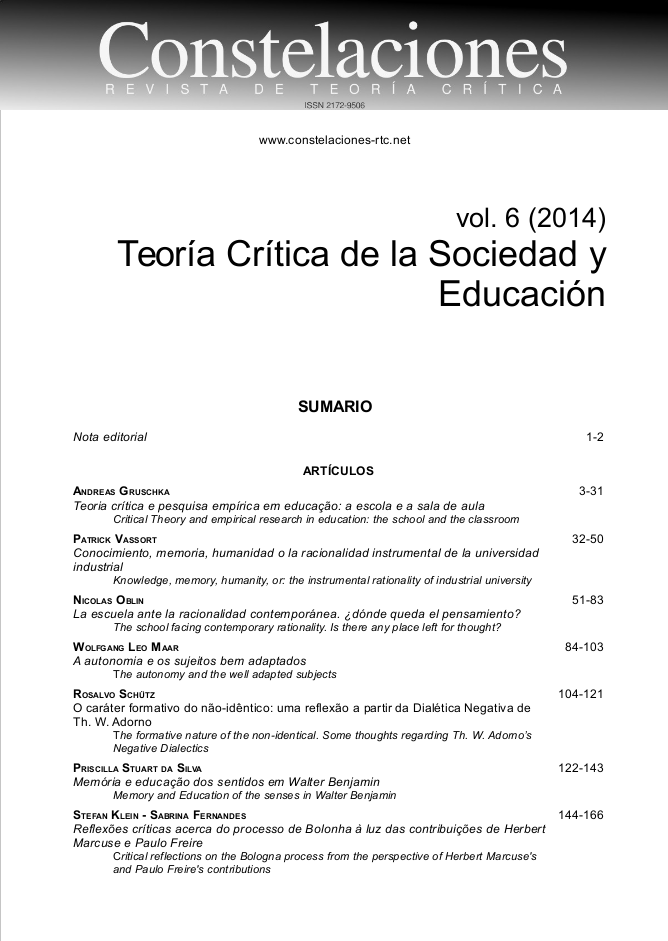O valor cognitivo do cinema e das imagens segundo Walter Benjamin
Palavras-chave:
Filosofia e cinema, Walter Benjamin, cinema, imagens, Teoria crítica, educação, semiformação, não-idêntico, esperançaResumo
Este trabalho pretende expor criticamente a concepção de Walter Benjamin sobre o cinema e sobre a natureza das imagens. Para tanto, analisa a argumentação desenvolvida por Benjamin no ensaio A obra de arte na era de sua reprodução técnica, além de se referir a Pequena História da fotografia. A análise objetiva ainda refletir sobre alguns aspectos de sua concepção, inclusive procurando desenvolver os que não foram suficientemente esclarecidos pelo autor. O objetivo é o de verificar como ele constituiu uma teoria crítica das imagens na modernidade e verificar em que medida elas apresentam um caráter emancipatório.Downloads
Downloads
Publicado
Como Citar
Edição
Secção
Licença
Aquellos autores/as que tengan publicaciones con esta revista, aceptan los términos siguientes:
1. Los autores/as conservarán sus derechos de autor y garantizarán a la revista el derecho de primera publicación de su obra, el cuál estará simultáneamente sujeto a la Licencia de reconocimiento de Creative Commons que permite a terceros compartir la obra siempre que se indique su autor y su primera publicación esta revista.
2. Los autores/as podrán adoptar otros acuerdos de licencia no exclusiva de distribución de la versión de la obra publicada (p. ej.: depositarla en un archivo telemático institucional o publicarla en un volumen monográfico) siempre que se indique la publicación inicial en esta revista.
3. Se permite y recomienda a los autores/as difundir su obra a través de Internet (p. ej.: en archivos telemáticos institucionales o en su página web) antes y durante el proceso de envío, lo cual puede producir intercambios interesantes y aumentar las citas de la obra publicada. (Véase El efecto del acceso abierto).
Confidencialidad de los datos
1. Constelaciones. Revista de Teoría Crítica garantiza que los datos que nos envíe serán utilizados únicamente para atender sus demandas manifestadas en este mensaje.
2. Sus datos no serán cedidos a terceros.
3. Cuando lo desee puede solicitar que sus datos sean eliminados de nuestros registros.





